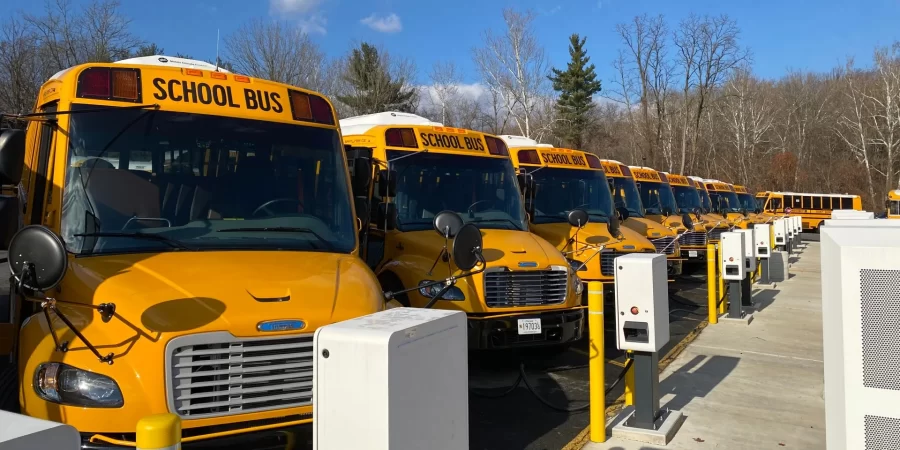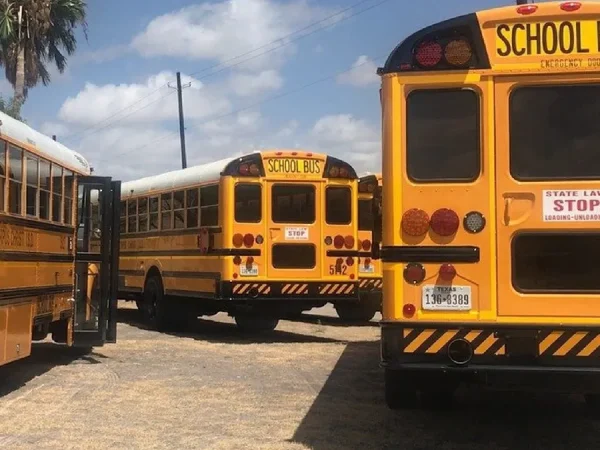MCPS goes green with 84 electric buses, becomes the most electrified fleet in the United States
In June 2022, Montgomery County Public Schools adopted Policy ECA to rigorously reduce its carbon footprint. Policy ECA, later renamed the Policy for Sustainability, commits MCPS to cut back on carbon emissions by 80% in 2027 and 100% by 2035. Highland Electric Fleets, established in 2019, is facilitating the shift to electric school buses and setting a precedent of environmental action for surrounding school districts across the country. As the MD Climate Solutions Now Act of 2025 requires all new school bus purchases and contracts to be electric by 2025, MCPS is promoting environmentally-conscious transportation through the addition of over 60 electric buses, making it the largest fleet of electric buses in the United States.
Highland manages the new transportation infrastructure by supplying and charging all of the MCPS electric buses. As of Fall 2022, 84 electric buses have driven 150,000 electric miles transporting students from five depots. Over the next four years, Highland will provide 326 total electric buses.
MCPS diesel buses use approximately 17,000 gallons of diesel fuel every day, which could be reduced to 10,500 with a switch to electric buses. All energy used to supply the buses is generated from the PJM grid, still using fossil fuels like coal but to a lesser extent.
While electric buses use notably less diesel than diesel buses, there still are concerns with the ostensibly higher costs and whether or not electric buses would be cost effective.
Market Associate at Highland Fleets, Claire Alford, clarified the confusion about the cost of electric buses.
“Highland models contract to be less than what a school district is paying for diesel,” said Alford. “There is a higher upfront cost of $400,000, but virtually nothing for maintenance.”
Diesel buses cost $250,000 each and contain over 90% more parts than electric buses leading to more breakdowns and more maintenance costs than electric buses.
The implementation of electric school buses may also benefit student health. Toxic airborne pollutants can be as much as 2.5 times more prevalent inside a diesel-powered bus than inside an electric-powered school bus, resulting in long term respiratory complications from routine exposure.

Allison is a junior in the Humanities program, but if she went to Hogwarts, she would be a Ravenclaw. This is her first year with The Pulse. She is a member...








